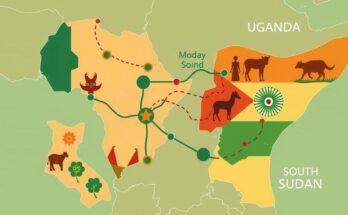A pivotal agreement was made between the Syrian government and the SDF on March 10 to promote unity and stability amidst ongoing violence. The deal recognizes Kurdish rights and aims for integration of institutions, yet its success is uncertain due to unresolved military and constitutional aspects. Analysts highlight the potential for economic benefits and improvements in governance while cautioning against possible authoritarianism.
On March 10, a significant agreement was reached between the interim Syrian government and the Kurdish-led Syrian Democratic Forces (SDF) aimed at national reconciliation. The implementation of this deal is currently uncertain after a recent constitutional declaration made by the interim government. The agreement seeks to unify military and civilian institutions under the Syrian state, coinciding with President Ahmad Al-Sharaa’s need for legitimacy amid criticisms regarding violence against minority Alawites by allied militias.
Analyst Nanar Hawach from the International Crisis Group emphasized the importance of timing, noting that the deal comes amid significant security challenges in Syria, including unrest and foreign interventions. Washington-based analyst Mutlu Civiroglu remarked that this agreement allows Al-Sharaa to project an image of inclusion for all identities in Syria’s future. SDF commander-in-chief Mazloum Abdi is recognized as a respected leader across various communities, enhancing the agreement’s potential for acceptance.
The Kurdish groups, operating under the SDF and Autonomous Administration of North and East Syria (AANES), condemned recent attacks targeting Alawite individuals, which Abdi characterized as a systematic attack on Syria’s minorities. The violence spiked earlier in March, resulting in significant casualties and prompting concerns about the protection of vulnerable communities.
The agreement between the interim Syrian government and the SDF represents a significant attempt at national reconciliation in Syria. Its success depends largely on resolving outstanding issues related to military integration and the rights of the Kurdish community. While the potential benefits include economic gains and improved governance, challenges such as military autonomy and the recent constitutional changes remain critical hurdles. Overall, the deal highlights a cautious but hopeful move towards stabilizing Syria after years of conflict.
Original Source: www.arabnews.com




